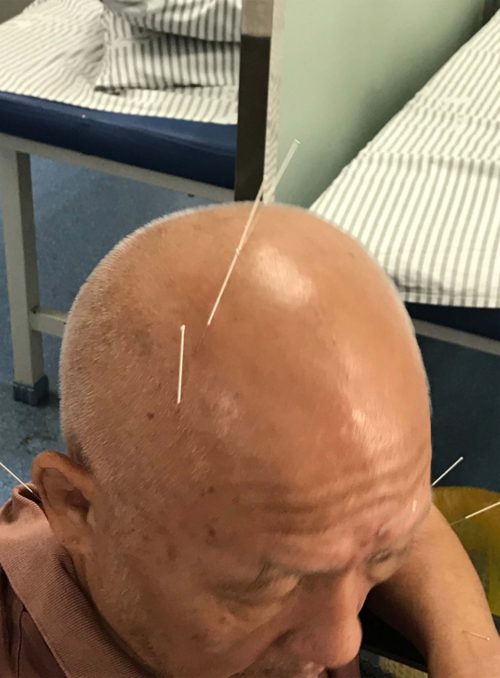Acupuncture effectively reduces cancer-related symptoms like pain, fatigue, dry mouth, nausea, and vomiting, recent studies show. Experts at Memorial Sloan-Kettering’s Integrative Medicine Service recommend that patients choose certified acupuncturists experienced with cancer care.

Acupuncture is often utilized to manage the side effects of cancer treatment
Acupuncture
Acupuncture, a 2,000-year-old Chinese medicine practice, stimulates acupoints with needles to enhance therapeutic effects. Heat, pressure, or electricity intensifies needle impact. Energy flows through body meridians, targeting specific tissues or organs. Customized acupuncture eases cancer treatment side effects. Sessions last 30 minutes, using 10–20 thin needles. Most patients feel no pain, with minimal injury risk. Over eight million Americans use acupuncture yearly, studies confirm. It treats back pain, headaches, and more. Recent research supports acupuncture for cancer symptom relief.
Acupuncture for Head and Neck Cancer
Over 100,000 Americans face head and neck cancer yearly, often with cancer spreading to neck lymph nodes. Consequently, surgeons remove spinal accessory nerves during lymph node dissection, causing shoulder issues. A 2010 Memorial Sloan-Kettering study, published in the Journal of Clinical Oncology, explored acupuncture’s impact on 58 patients with chronic pain or dysfunction post-neck dissection. Researchers randomly assigned patients to weekly acupuncture or standard care, including physical therapy and medication, for four weeks. Acupuncture significantly reduced pain and dysfunction compared to standard care. Additionally, the acupuncture group reported notable relief from xerostomia, a severe dry mouth condition.
Acupuncture and Leukemia
Many leukemia patients seek complementary treatments to manage symptoms and enhance outcomes. A 2009 Memorial Sloan-Kettering review in Expert Reviews Anticancer Therapies found acupuncture highly effective for symptom relief. Chemotherapy often causes peripheral neuropathy, leading to pain, numbness, and weakness. Acupuncture reduces these symptoms, enabling higher chemotherapy doses for better results. Additionally, acupuncture curbs chemotherapy-induced nausea, with optimal results from sessions timed before and during treatment. It remains safe for patients on anticoagulants like Coumadin® or heparin. The authors emphasize distinguishing beneficial complementary therapies, like acupuncture and yoga, from unproven alternative therapies.
Acupuncture and Breast Cancer
Many breast cancers feature estrogen receptors, responding well to anti-estrogen therapies that slow tumor growth. These treatments often induce early menopause, causing hot flashes, fatigue, and sweating. Since hormone replacement isn’t an option, doctors prescribe antidepressants like venlafaxine. A 2010 study in the Journal of Clinical Oncology assigned 50 women with hormone-receptor-positive breast cancer to two groups. One group received acupuncture for 12 weeks; the other took venlafaxine. Both groups saw reduced hot flashes, depression, and quality-of-life issues. However, venlafaxine users faced symptom recurrence two weeks post-treatment, while acupuncture users experienced delays until 15 weeks. Acupuncture caused no significant side effects, unlike venlafaxine, which led to 18 adverse effects, including nausea and anxiety.
Finding the Right Acupuncturist for Cancer Patients
The NCCAOM lists nationally certified practitioners in Oriental medicine, acupuncture, herbology, and bodywork therapy. Memorial Sloan-Kettering’s Integrative Medicine Service trains thousands of acupuncturists globally. In April 2010, it shifted three-day, in-person courses to online formats for international access. The service also keeps a list of cancer-trained acupuncturists. Specialists emphasize choosing NCCAOM-certified or licensed acupuncturists with cancer patient experience.
Resources:
– SOURCE: Memorial Sloan-Kettering Cancer Center
Copyright: Medical News Today
http://www.medicalnewstoday.com/articles/199981.php
